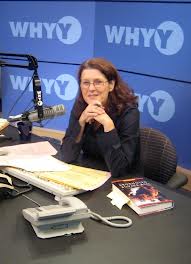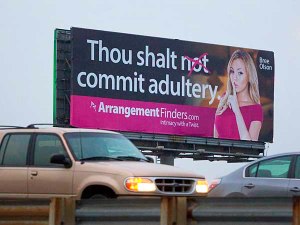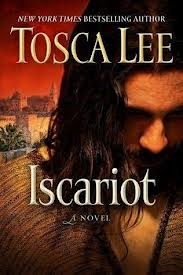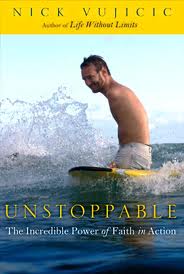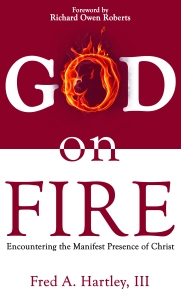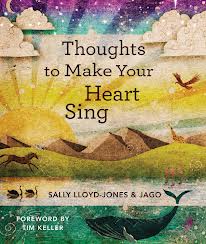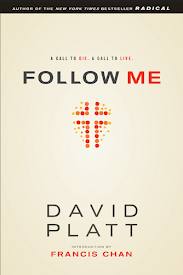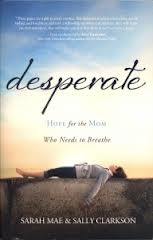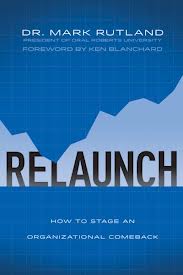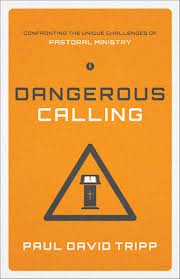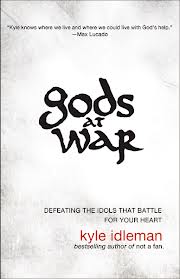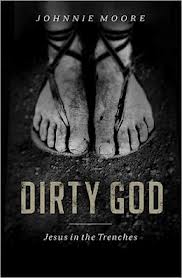Each generation of evangelicals has looked to certain thought leaders for direction and inspiration. Whether it was Wesley, Whitfield and Spurgeon or Billy Graham, James Boice and John Stott, these people had an outsized influence on the evangelicals of their day. In my formative years, the voices of James Dobson, Jerry Falwell and Pat Robertson defined the culture wars that shaped a generation. These days, there are many new voices that are influencing evangelicals in ways both big and small. I realize that any attempt to create list like I have done is always nuanced by one’s own perspective and seat in the evangelical big tent. With that caveat stated, I do believe that these voices are having a broad influence today across denominational lines and previously established boundary lines.
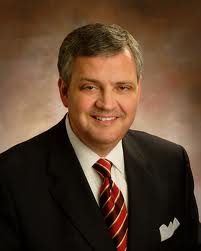 Al Mohler is the President of Southern Baptist Theological Seminary and prominent blogger at www.albertmohler.com. He is a part of a group of significant reformed Baptists who are making an impact far outside of their own circles of influence. Despite being a theologian, he also writes in an accessible way for the lay person and his blog is read by people all across the evangelical spectrum. He is also a significant voice into the wider secular culture and while taking on some of the same issues from the past, he is doing so in a more thoughtful and respectful way. Just this past week, he wrote an insightful blog post for Christianity Today on the impact of Tim Tebow’s decision not to speak at First Baptist in Dallas.
Al Mohler is the President of Southern Baptist Theological Seminary and prominent blogger at www.albertmohler.com. He is a part of a group of significant reformed Baptists who are making an impact far outside of their own circles of influence. Despite being a theologian, he also writes in an accessible way for the lay person and his blog is read by people all across the evangelical spectrum. He is also a significant voice into the wider secular culture and while taking on some of the same issues from the past, he is doing so in a more thoughtful and respectful way. Just this past week, he wrote an insightful blog post for Christianity Today on the impact of Tim Tebow’s decision not to speak at First Baptist in Dallas.
Ann Voskamp is a Canadian farmer’s wife who exploded onto the larger evangelical stage with the  publication of her best-selling book, One Thousand Gifts. Her blog, www.aholyexperience.com is widely read and is now one of the most popular evangelical blogs on several ranking systems. Her highly literate and unique writing style is simple and complex at the same time and is considered an acquired taste by some. Her focus on the beauty of some of the most mundane aspects of life have deeply influenced her writing and brought a new emphasis on gratitude as a key element in worship and daily Christian experience.
publication of her best-selling book, One Thousand Gifts. Her blog, www.aholyexperience.com is widely read and is now one of the most popular evangelical blogs on several ranking systems. Her highly literate and unique writing style is simple and complex at the same time and is considered an acquired taste by some. Her focus on the beauty of some of the most mundane aspects of life have deeply influenced her writing and brought a new emphasis on gratitude as a key element in worship and daily Christian experience.
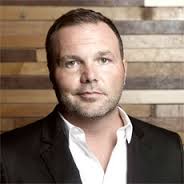 Mark Driscoll is the founder and current preaching pastor of Mars Hill Church in Seattle, Washington, co-founder of Churches Helping Churches and the Acts 29 Network. He is a prolific speaker and writer and has been at the forefront of new preaching style that has been described as casual, but direct. Some have attributed his success to his direct answers to complicated spiritual questions. He has drawn some controversy due to his style of preaching and his outspoken complementarian views of gender roles. At times, his statements have been a lightning rod for the more progressive elements of evangelical Christianity.
Mark Driscoll is the founder and current preaching pastor of Mars Hill Church in Seattle, Washington, co-founder of Churches Helping Churches and the Acts 29 Network. He is a prolific speaker and writer and has been at the forefront of new preaching style that has been described as casual, but direct. Some have attributed his success to his direct answers to complicated spiritual questions. He has drawn some controversy due to his style of preaching and his outspoken complementarian views of gender roles. At times, his statements have been a lightning rod for the more progressive elements of evangelical Christianity.
John Piper is a reformed Baptist preacher and prolific writer. His Desiring God Ministries and widely popular blog 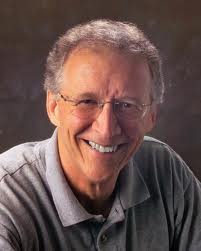 www.desiringgod.org/blog have had an international influence that is continuing to grow. His writings have significantly influenced this generation of preachers and he is often quoted in sermons around the country. His influence extends through conferences like Together for the Gospel and his affiliation with the Gospel Coalition. Like others in this list, he has occasionally been controversial, particularly in the recent debate about Rob Bell when he famously tweeted “Farewell Rob Bell” regarding the publication of the book Love Wins.
www.desiringgod.org/blog have had an international influence that is continuing to grow. His writings have significantly influenced this generation of preachers and he is often quoted in sermons around the country. His influence extends through conferences like Together for the Gospel and his affiliation with the Gospel Coalition. Like others in this list, he has occasionally been controversial, particularly in the recent debate about Rob Bell when he famously tweeted “Farewell Rob Bell” regarding the publication of the book Love Wins.
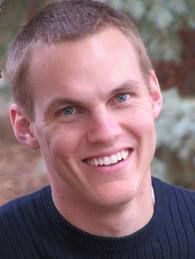 David Platt is the head pastor of The Church at Brook Hills in Birmingham, Alabama, and he is also the author of the New York Times Best Seller Radical: Taking Back Your about Faith from the American Dream. Like Ann Voskamp, he exploded onto the evangelical scene more recently and almost exclusively due to the success of his first book. As a younger evangelical, he has a broad appeal to the next generation. I had the privilege of hearing him speak at the Urbana Student Missions conference in December and have never seen someone who was so passionate that they seemed out of breath before they even started speaking. His orthodox Christian teaching combined with a strong appeal to mercy and justice in the here and now for the least of these is a compelling message. His approach seems to be very effective in bridging the gap from the evangelists and culture warriors of previous generations to those who see social justice as a key component of evangelical Christianity today.
David Platt is the head pastor of The Church at Brook Hills in Birmingham, Alabama, and he is also the author of the New York Times Best Seller Radical: Taking Back Your about Faith from the American Dream. Like Ann Voskamp, he exploded onto the evangelical scene more recently and almost exclusively due to the success of his first book. As a younger evangelical, he has a broad appeal to the next generation. I had the privilege of hearing him speak at the Urbana Student Missions conference in December and have never seen someone who was so passionate that they seemed out of breath before they even started speaking. His orthodox Christian teaching combined with a strong appeal to mercy and justice in the here and now for the least of these is a compelling message. His approach seems to be very effective in bridging the gap from the evangelists and culture warriors of previous generations to those who see social justice as a key component of evangelical Christianity today.
Francis Chan is the former teaching pastor of Cornerstone Community Church in Simi Valley, CA; a church he and his wife started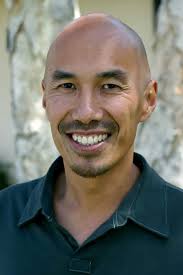 in 1994. He is also the author of the best-selling book Crazy Love and popular conference speaker. As a widely respected younger evangelical voice, he has been able to present gospel centered, orthodox Christian teaching in refreshingly new and accessible ways to a generation of evangelicals that have become cynical about the consumeristic faith often found in mega churches. This was particularly helpful when he wrote the book, Erasing Hell as a counterpoint to Rob Bell’s controversial book Love Wins.
in 1994. He is also the author of the best-selling book Crazy Love and popular conference speaker. As a widely respected younger evangelical voice, he has been able to present gospel centered, orthodox Christian teaching in refreshingly new and accessible ways to a generation of evangelicals that have become cynical about the consumeristic faith often found in mega churches. This was particularly helpful when he wrote the book, Erasing Hell as a counterpoint to Rob Bell’s controversial book Love Wins.
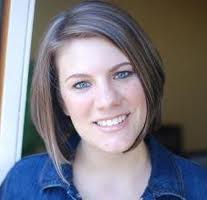 Rachel Held Evans is one of the most prominent voices among progressive evangelicals these days. Her blog www.rachelheldevans.com is extremely popular and she is the author of the books Evolving from Monkey Town and the recent best seller, A Year of Biblical Womanhood. She is an outspoken proponent for an egalitarian view of gender roles and has drawn controversy for her views on science and faith, and a desire to see evangelicals approach homosexuality from a more charitable perspective. While many conservative evangelicals will struggle with her perspectives, she maintains that her views are orthodox and has a significant influence on thought leaders in the next generation.
Rachel Held Evans is one of the most prominent voices among progressive evangelicals these days. Her blog www.rachelheldevans.com is extremely popular and she is the author of the books Evolving from Monkey Town and the recent best seller, A Year of Biblical Womanhood. She is an outspoken proponent for an egalitarian view of gender roles and has drawn controversy for her views on science and faith, and a desire to see evangelicals approach homosexuality from a more charitable perspective. While many conservative evangelicals will struggle with her perspectives, she maintains that her views are orthodox and has a significant influence on thought leaders in the next generation.
Justin Taylor and the Gospel Coalition – Justin Taylor is the writer of the Between Two Worlds blog that is now hosted by the 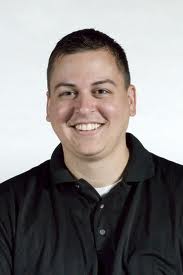 Gospel Coalition Website. He is a VP for Editorial at Crossway books and a very influential behind the scenes evangelical. His blog was regularly ranked as the most popular evangelical blog for a number of years and is still very popular. Through his blog and his work at Crossway, he has been a voice for the new young reformed writers and speakers that have had a major influence on this generation of evangelicals. He may be best known in recent years for doing a critical review of Rob Bell’s Love Wins book prior to its publication and identifying Rob as a Universalist in his blog post. The Gospel Coalition is now the most prominent voice for these young reformers and Justin is making sure that their views are heard.
Gospel Coalition Website. He is a VP for Editorial at Crossway books and a very influential behind the scenes evangelical. His blog was regularly ranked as the most popular evangelical blog for a number of years and is still very popular. Through his blog and his work at Crossway, he has been a voice for the new young reformed writers and speakers that have had a major influence on this generation of evangelicals. He may be best known in recent years for doing a critical review of Rob Bell’s Love Wins book prior to its publication and identifying Rob as a Universalist in his blog post. The Gospel Coalition is now the most prominent voice for these young reformers and Justin is making sure that their views are heard.
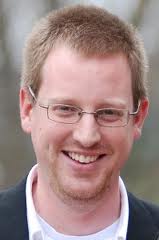 Tim Challies – is a Canadian blogger (www.challies.com) and book reviewer. His tag line on his blog is “informing the reforming” and that has been his calling card for many years. Aside from Justin Taylor, Tim may be the most prominent voice in the young reformed movement and his blog is certainly one of the most widely read. Well known for his extensive book reviews, he is both loved and hated for his critiques. He has become known is some circles as the gatekeeper of orthodoxy for the reformed reader and thinker. This has led to his panning some very popular Christian books like The Purpose Driven Life and Heaven is for Real while championing some lesser known authors. His views led him to criticize Ann Voskamp’s book One Thousand Gifts, but also resulted in an apology to her in a later blog for the tone of his original blog post.
Tim Challies – is a Canadian blogger (www.challies.com) and book reviewer. His tag line on his blog is “informing the reforming” and that has been his calling card for many years. Aside from Justin Taylor, Tim may be the most prominent voice in the young reformed movement and his blog is certainly one of the most widely read. Well known for his extensive book reviews, he is both loved and hated for his critiques. He has become known is some circles as the gatekeeper of orthodoxy for the reformed reader and thinker. This has led to his panning some very popular Christian books like The Purpose Driven Life and Heaven is for Real while championing some lesser known authors. His views led him to criticize Ann Voskamp’s book One Thousand Gifts, but also resulted in an apology to her in a later blog for the tone of his original blog post.
Tim Keller – is the founder and senior pastor at Redeemer Presbyterian Church in New York City. He is also the author of several 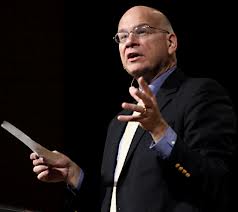 best-selling books including the deeply influential The Reason for God. His passion for urban ministry and willingness to deal with the hard questions has helped his ministry to grow dramatically. Today, he is a world renowned figure in evangelicalism and speaks across the globe. Many consider him a modern day successor to C.S. Lewis and one of the most lucid apologists for the Christian faith in this generation. He is a co-founder of the Gospel Coalition and a regular speaker at major evangelical conferences.
best-selling books including the deeply influential The Reason for God. His passion for urban ministry and willingness to deal with the hard questions has helped his ministry to grow dramatically. Today, he is a world renowned figure in evangelicalism and speaks across the globe. Many consider him a modern day successor to C.S. Lewis and one of the most lucid apologists for the Christian faith in this generation. He is a co-founder of the Gospel Coalition and a regular speaker at major evangelical conferences.

